The Da Nang Museum of Cham Sculpture stands as one of Vietnam’s most important cultural institutions, dedicated to preserving the rich heritage of the ancient Champa kingdom. Renowned for its vast collection of Champa art and artifacts, the museum offers visitors a deep dive into the history and artistry of this fascinating civilization. With its stunning architecture and unique exhibits, it’s a must-visit for those looking to explore Vietnam’s cultural and historical treasures.
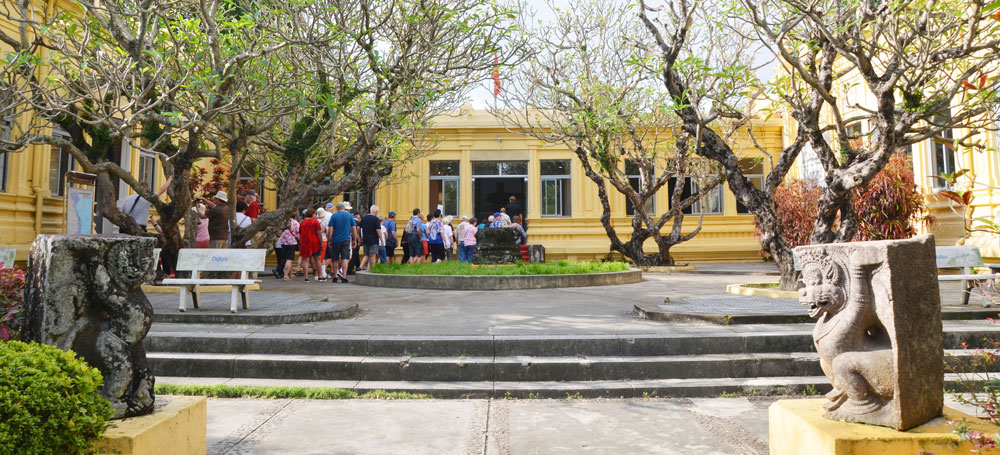
The Da Nang Museum of Cham Sculpture has its roots deeply embedded in Vietnam's French colonial era, dating back to the early 20th century. During this period, French archaeologists, fascinated by the ancient Champa civilization, began collecting and preserving Cham artifacts scattered across central Vietnam. Among these dedicated individuals was Henri Parmentier, a prominent figure in archaeology who played a key role in founding the museum. His efforts, alongside other French researchers, ensured that these remarkable pieces of Cham art would be safeguarded for future generations, giving birth to the museum in 1919.
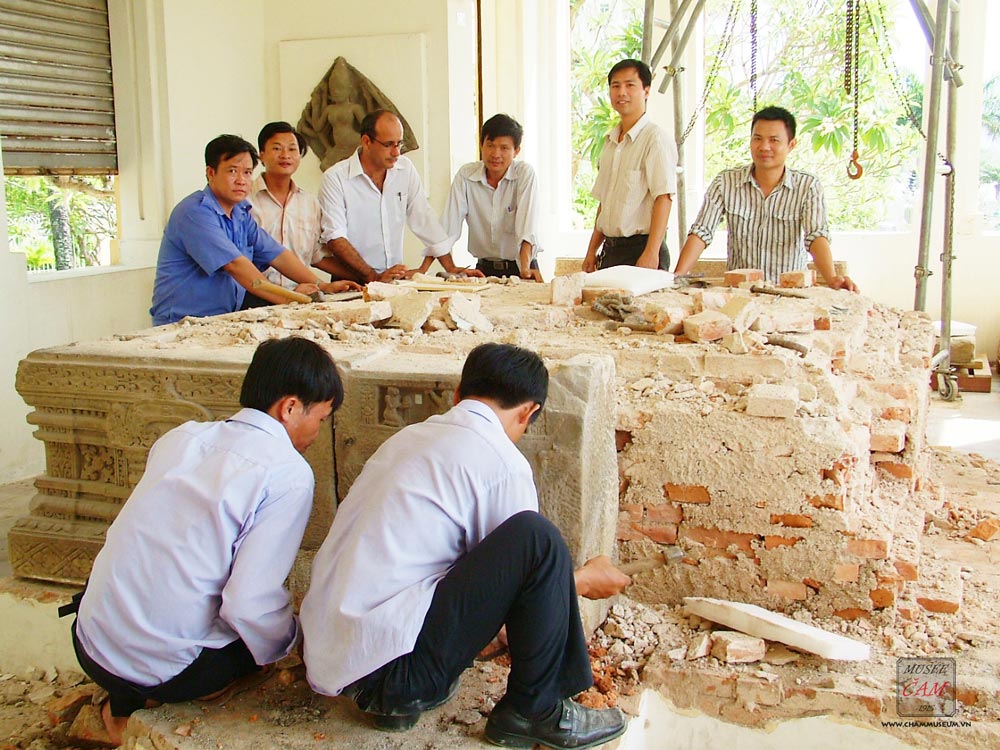
Since its establishment, the museum has grown significantly, evolving from a modest collection of sculptures into the largest Cham sculpture museum in the world. Over the years, the museum has undergone several expansions and renovations to accommodate its ever-growing collection. Each addition has been carefully designed to complement the original architecture, preserving its charm while ensuring the space meets modern exhibition standards. Today, the Da Nang Museum of Cham Sculpture stands as a vital cultural landmark, attracting visitors from around the globe to explore the legacy of the Champa kingdom.
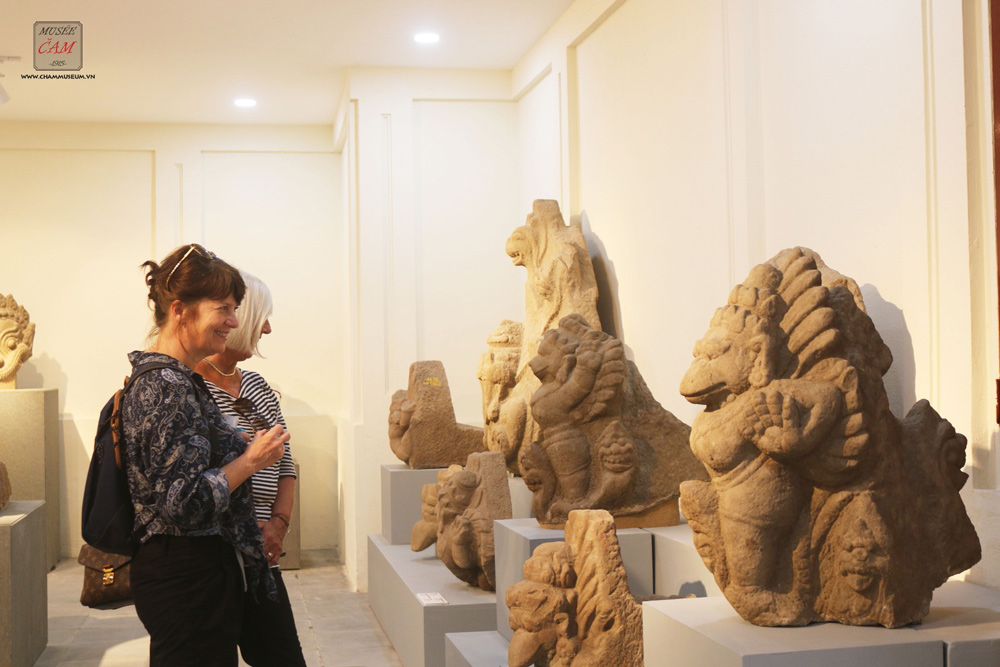
The Da Nang Museum of Cham Sculpture is home to an extraordinary collection of over 300 sandstone sculptures, making it one of the most important repositories of Cham art in the world. Spanning a period from the 7th to the 15th centuries, the collection provides a window into the rich spiritual and cultural life of the ancient Champa civilization. These pieces, many of which were uncovered from Cham temple sites across Central Vietnam, offer invaluable insights into the art, religion, and social practices of the time. The sculptures, deeply influenced by Hinduism and later Buddhism, showcase the intricate craftsmanship and religious devotion of the Cham people, offering visitors a unique opportunity to understand the significance of these ancient traditions.
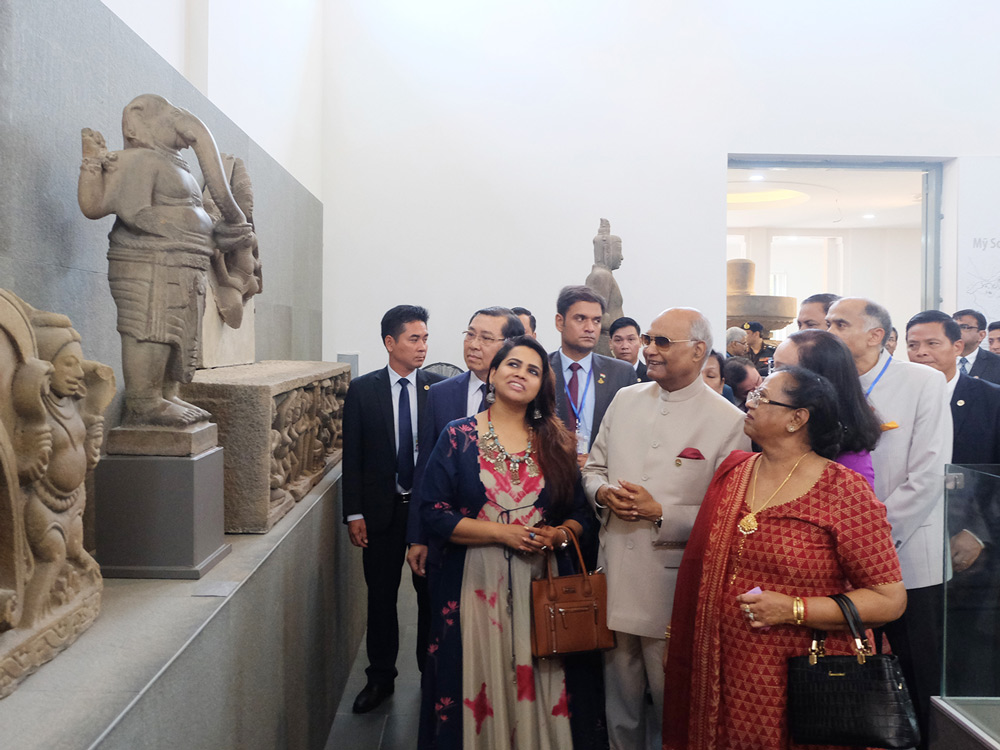
Among the museum’s many treasures, several sculptures stand out as masterpieces of Cham artistry. One of the most striking is the Dancing Shiva, a dynamic representation of the Hindu god in a cosmic dance, symbolizing creation and destruction. This piece captures the grace and power of Shiva in motion, with intricate detailing that reflects the skill of the Cham artisans.
Another notable sculpture is Uma, the consort of Shiva, depicted with serene beauty and adorned in fine carvings. This sculpture represents fertility and devotion, central themes in Cham religious art.
Visitors are also captivated by the statue of Ganesha, the elephant-headed god of wisdom and remover of obstacles. The depiction of Ganesha in Cham art, often seated and holding symbolic objects, reflects the fusion of Cham and Hindu cultures.
The collection also includes numerous sculptures of Vishnu, the preserver and protector in Hindu mythology. These representations, often larger-than-life and intricately detailed, showcase Vishnu in various forms, reinforcing his central role in Cham religious practices.
Each of these sculptures not only highlights the technical brilliance of Cham stonework but also offers a glimpse into the spiritual life of a civilization that flourished for centuries.
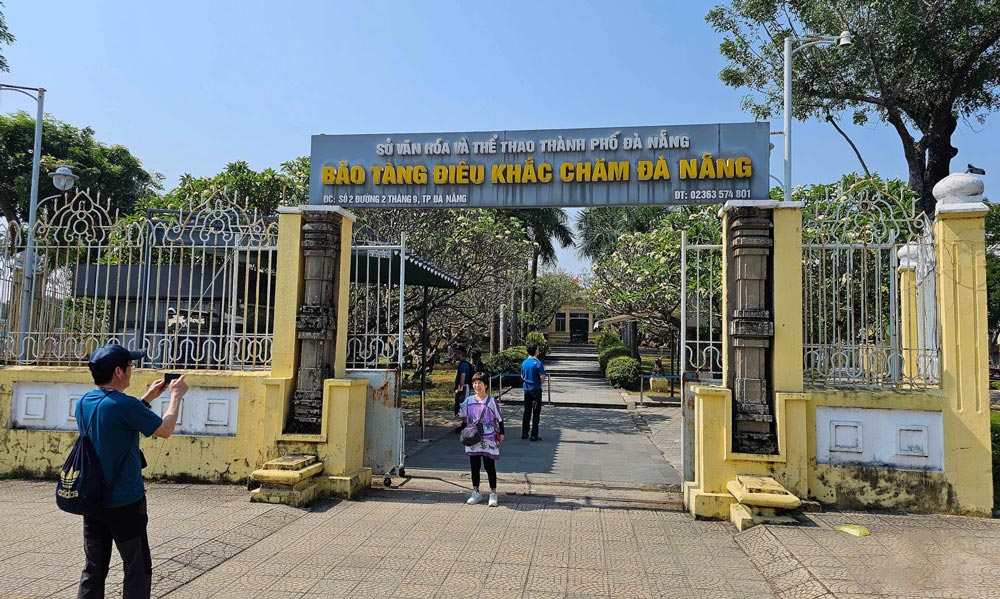
The Da Nang Museum of Cham Sculpture is centrally located in the heart of Da Nang, making it easily accessible for both tourists and locals. Its full address is 2, 2 Tháng 9 Street, Hải Châu District, Da Nang, Vietnam. This prime location puts the museum near the Han River, making it a convenient stop while exploring the city's cultural and historical sites. For more information, you can contact the museum directly via phone at (+84) 236 357 4801 or visit their official website for the latest updates. A detailed map below shows the exact location, ensuring you won’t have any trouble finding your way.
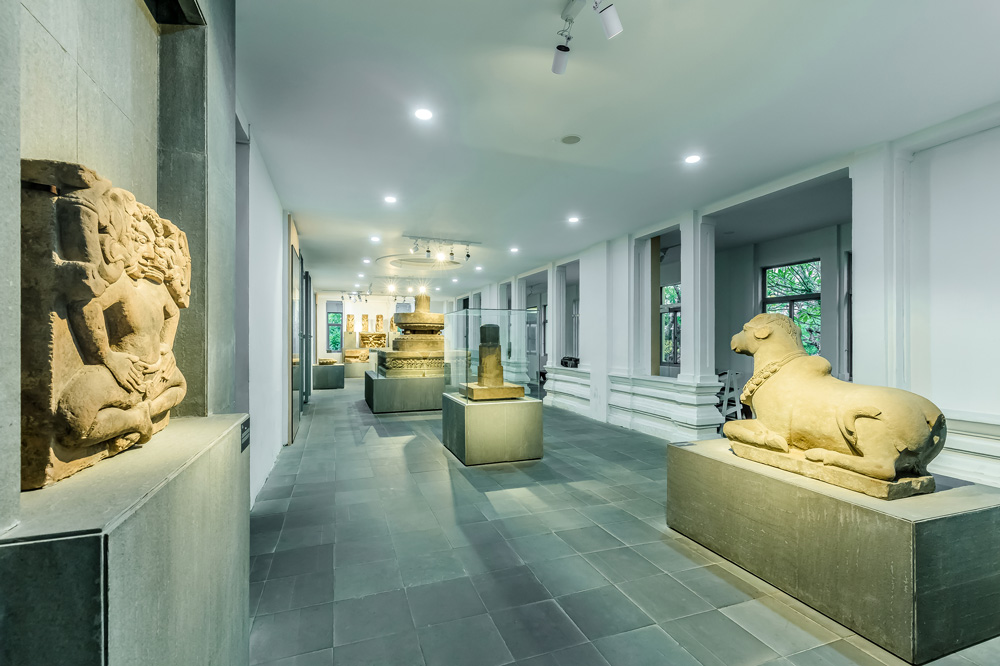
The museum is open daily, allowing visitors to explore Cham art and history any day of the week. Typically, the museum operates from 7:00 AM to 5:00 PM, making it a perfect destination for a morning or afternoon visit. It is recommended to check in advance for any seasonal variations or special closures, such as on holidays or during certain events, to ensure a smooth experience.
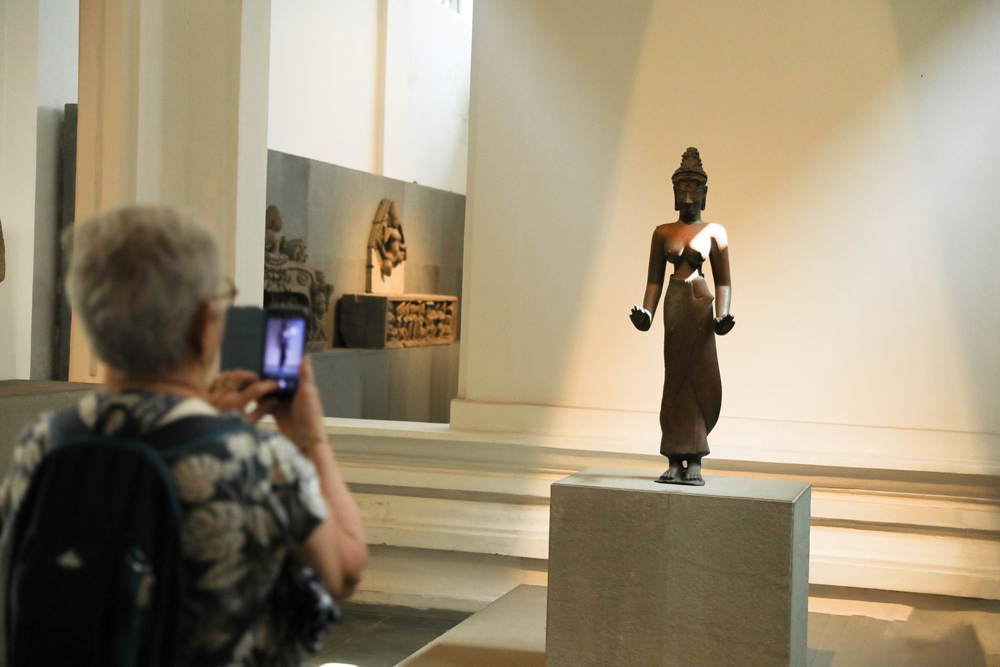
The entrance fee for the museum is generally affordable, making it accessible for everyone who wishes to delve into the fascinating world of Cham art. As of the most recent update, the standard admission price is approximately 60,000 VND per person. Discounts are often available for students, seniors, and groups, providing an even more budget-friendly way to enjoy this cultural gem. Be sure to inquire at the ticket counter or online for the latest pricing and available discounts.
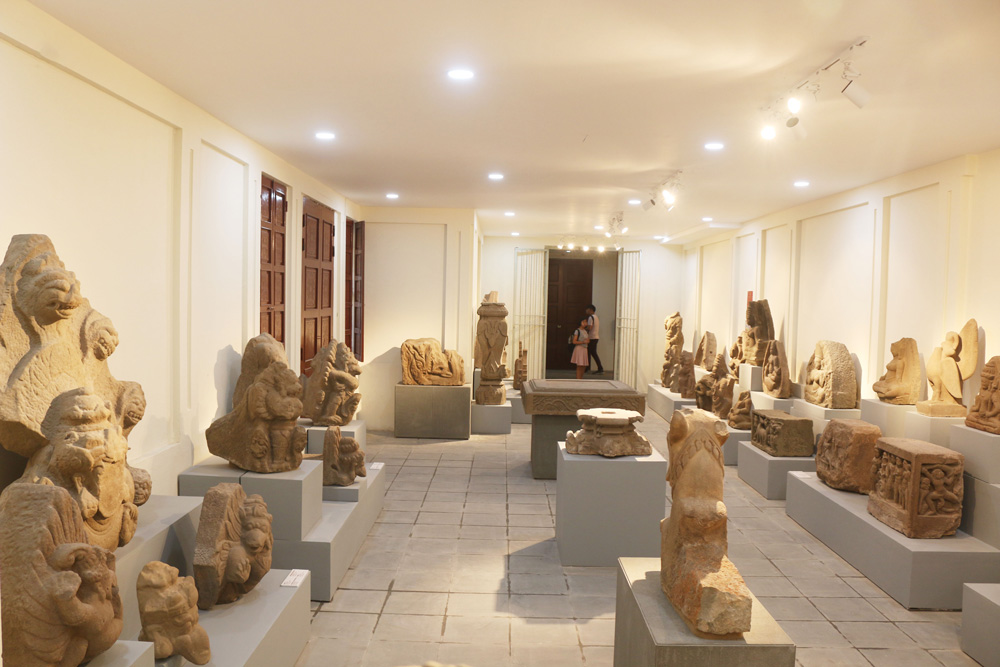
The Cham Museum in Da Nang is a must-visit for anyone interested in Vietnam’s rich cultural history. This museum is home to the world’s largest collection of Cham sculpture, showcasing intricate artifacts that span centuries—from the 7th to the 15th century. A visit to this museum offers a unique glimpse into the ancient Champa civilization, their artistic expressions, and their religious traditions. Whether you're an art lover, history buff, or simply curious about Vietnamese culture, the Cham Museum promises a fascinating journey through time, making it one of the most culturally significant sites in the region.
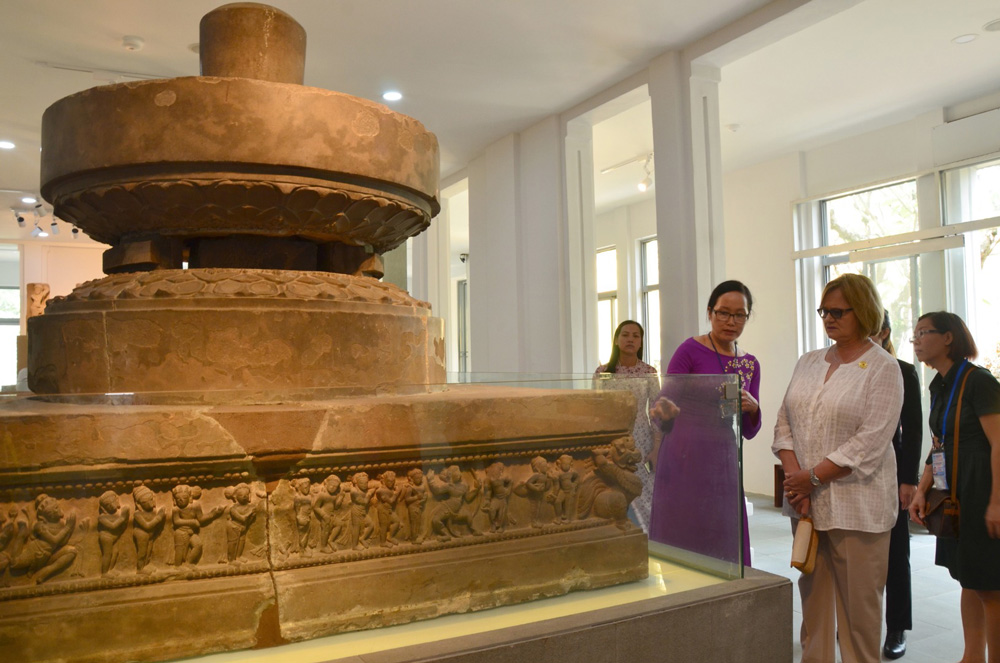
To make the most of your experience at the Cham Museum, plan your visit during the early morning or late afternoon to avoid the midday heat. The museum’s open-air galleries can get quite warm during the peak hours, so these cooler times provide a more comfortable atmosphere for exploration. Allocate at least 1-2 hours to explore the collection fully, as there are numerous detailed sculptures and exhibits that deserve a close look.
If available, consider joining a guided tour or using an audio guide to gain deeper insights into the historical context and significance of the artifacts on display. This added layer of information can enhance your understanding and appreciation of the Cham civilization. With these tips in mind, your visit to the Cham Museum will be both enlightening and enjoyable.
In conclusion, the Da Nang Museum of Cham Sculpture stands as a remarkable tribute to Vietnam's ancient Champa civilization, offering visitors a rare glimpse into its rich history, art, and culture. For anyone passionate about history or simply seeking a deeper understanding of Vietnam’s cultural heritage, this museum is an absolute must-visit. By exploring its impressive collection, you’ll not only gain insights into the art of the Cham people but also connect with an important part of Southeast Asia’s past.
For a seamless and enriching travel experience, consider booking your trip with Asia Mystika. Our Vietnam tour packages offer tailor-made experiences, guided by local experts who ensure that your journey is both informative and memorable. With our commitment to trustworthy service, local knowledge, and unbeatable value, we are here to help you discover the very best of Vietnam, including hidden cultural treasures like the Cham Museum. Start planning your adventure today!